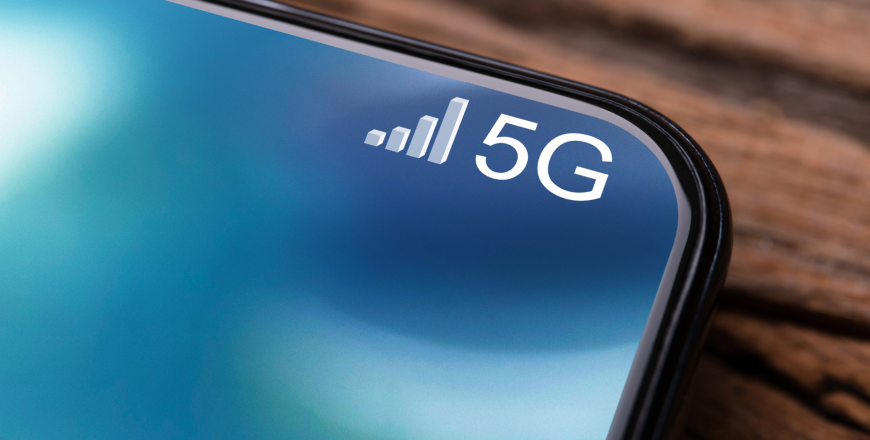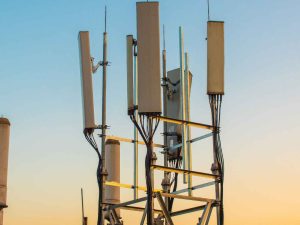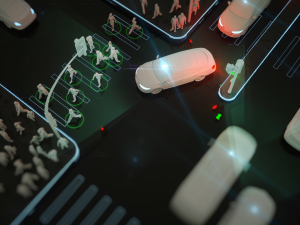5G Mobile Networks

Course Overview
5G is the next generation of wireless connectivity that brings faster speeds and reduced latency in networks for a host of mobile devices and services.
In this course, you will learn about this next major phase of wireless and mobile communication technology and understand how the various components in 5G mobile networks work together to provide increased bandwidth, Ultra-Reliable Low Latency Communication (URLLC) and dynamic connectivity for enhanced mobile broadband services. You will also learn about the standards beyond the current 4G/IMT-advanced standards.
The course also includes topics such as radio channels, RF, antennas, propagation, architecture, components, cellular/backhaul and applications that will alter the form and operation of mobile network operators.
Participants will learn how 5G wireless networks perform as compared to 4G in terms of speed, agility, and intelligence. New trends and services such as Device-to-Device, Internet of Things (IoT), smart cities, autonomous driving, low-latency remote control, as well as other use cases that operators will be able to deploy to boost their revenue will be covered.
All in all, participants will gain an in-depth understanding of the operation of 5G networks and how operators would be able to harness the full benefits in an era characterized by software defined businesses.
Target Audience
This course is designed for professionals who are interested to understand 5G technologies and its use cases.
- Radio and Packet Core Engineers
- Managers involved in the planning and design of wireless networks
- Project Managers
- IP Engineers
- Technical Product and Marketing Professionals
- C-level Decision Makers
- Executives
- Regulators
Duration & Training Format
- Classroom: 3 days
- LIVE Virtual: 21 hours
*Note:
- A minimum of 8 or more participants is required for a Classroom session to commence.
- A minimum of 6 or more participants is required for a LIVE Virtual session to commence.
- LIVE Virtual courses can be conducted for 5 hours or 7 hours daily. Please note that the number of training days will be extended if you opt for 5 hours daily.
Upcoming Course Dates
There are no upcoming course dates currently scheduled for this course. If you are keen on attending this course, please register your interest and indicate your preferred training dates via our course enquiry form for us to open a Classroom/LIVE Virtual class schedule for this course.
Course Objectives
At the end of the course, participants will be able to:
- Understand 5G and 5G technology drivers
- Understand 5G network architecture, components, features and their benefits
- Explain the RF, PHY, MAC and Core network operation of 5G
- Describe typical 5G Use Cases and deployment scenarios
- Describe the conditions necessary to support 5G deployments
- Understand how to deploy 5G small cells for their coexistence with pre-5G macrocells
- Gain in-depth knowledge of advanced wireless technology concepts like Massive MIMO, Virtualized RAN and more
Key Benefits
After completing the course, participants will acquire an in-depth understanding of 5G technologies. They will be able to plan and design a best-in-class software-defined 5G wireless network that offer leading-edge applications that would satisfy both current and future market requirements.
Course Outline
- Introduction to 5G Wireless Communications
- Why 5G?
- 5G as a technology vision
- 5G features
- 5G technologies & objectives
- 5G Requirements and Specifications
- 5G Requirements
- The 10 Pillars of 5G
- Capacity Increase
- Bandwidth
- Spectral Efficiency
- Variety of Services and Applications
- Variety of Device Types
- Power Consumption
- Disruptive network technologies
- Resilience of the network
- Pervasive Networks
- Internet of Things (IoT) and Device-to-Device communication
- Ubiquitous connectivity and computing
- 5G Vision
- 5G Standardization
- 3GPP Evolution and 5GPP
- 5G Infrastructure PPP
- IEEE
- Horizon 2020 Framework Programme
- METIS Project
- 5G Innovation Centre
- Visions of Companies
- 5G in Europe, North America and Asia
- 5G Architecture
- 5G Internet
- Context-Awareness
- Virtualization and Dynamic Software-based Network Reconfiguration
- Multi-technology Mobility
- Quality of Experience (QoE) & QoS
- Mobile Clouds
- 5G Mobile Networks
- Heterogeneous Networks & Small Cells
- Capacity Limits
- Densification
- Mobile Data Demands
- Demand vs. Capacity vs. Delay vs. QoE
- Co-Operative Networks
- Diversity and Relaying Strategies
- PHY and MAC layer protocols
- Deployment and Performance Evaluation
- Cognitive Radio
- Dynamic Spectrum Optimization
- Multi-technology & Multi-Tier Carrier Aggregation
- Energy Efficiency
- White Spaces for 5G
- 5G Broadcast Broadband Architecture
- SON Evolution for 5G
- 5G Air Interface
- New Access Protocols
- SDR-based Air Interface
- PHY layer procedures
- Radio Channel Models
- Propagation Models for 5G
- Advanced MIMO and mWave Beamforming
- Network Discovery
- Coexistence of macrocells and cognitive smallcells
- Security for 5G Wireless Communications
- System Architecture
- Potential Security Issues
- User Equipment
- Access Network
- Core Network
- IP Network
- 5G Operational Scenarios
- 5G Implementation Roadmap
- Capacity and Performance
- 5G Evaluation Tools and Testbeds
- Examples of 5G scenarios and its technology components
Note: A Certificate of Completion will only be issued upon achieving at least 75% attendance for the course.
Pre-requisites
- A basic understanding of IP-based communications
- Knowledge of core networking and functions
- Experience with IT infrastructure (i.e., ethernet, switches, routers)
- An understanding of current 4G air interface and core network technologies



